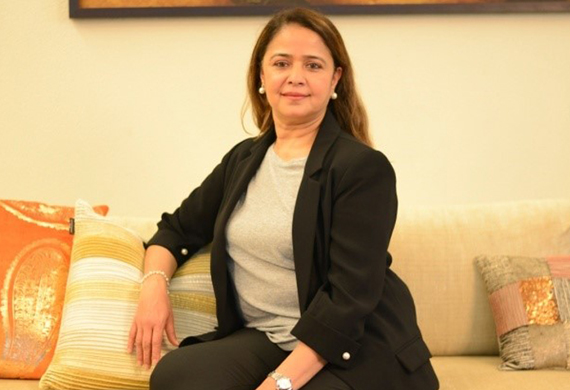
Women-Led Social Entrepreneurship: A Deep-Dive
By: Kirti Kabra, Director, RR Global
Kirti Kabra brings a unique blend of technical and corporate expertise to the brands. An exceptional strategist and visionary, she has brought consistent results and has led the group of brands to leave their successful footprints in the global markets.
While there has been a considerable rise in women entrepreneurship in recent years, in India and across the globe, the numbers still pale in comparison to that of their male counterparts. However, when it comes to the specific domain of social entrepreneurship, the participation of women is at a significantly higher level, with women accounting for 45% of all social entrepreneurs as per a finding by Global Entrepreneurship Monitor.
A ‘social enterprise’ may be defined as an entrepreneurial venture set up with specific social objectives. The profits generated by their business activities are typically reinvested into the enterprise or the local community. Social enterprises have a tremendous role to play in tackling a range of socioeconomic issues, improving the lives of unprivileged and underserved communities, and generating numerous training and employment opportunities.
In the Indian context, decades of progressive policies have enabled us to make significant strides in terms of reducing gender inequities and empowering women. The growth of women-led social entrepreneurship however signals a shift from women empowerment to women-led development, enabling women to play a pivotal role in the nation’s advancement.
A Keener Understanding of the Need for Change
Women tend to have a greater awareness of the need for social change. Traditionally, this has contributed tremendously to their participation in social activism, and in recent years, has driven them to make a mark through the entrepreneurial sphere.
The past professional experiences of many female social entrepreneurs have provided them with an insight into some of the unique challenges women face in the workplace. Seeing fellow female workers and professionals grapple with issues such as the gender pay gap, or a lack of flexible work hours, motivates these entrepreneurs to create more equal and flexible professional or business opportunities for women.
Women professionals who have worked in the healthcare sector and have seen women have trouble gaining access to quality healthcare have a keen insight into the grassroots-level issues that cause this unfortunate situation, which prompts them to address it through healthcare-focused social enterprises. Similarly, women who have worked in education have a clearer understanding of the gaps that can be addressed in that sector through a business.
Above all, female business leaders understand the immense value of financial freedom for women and the crucial need for underprivileged women to have the means to attain it. This motivates them to build enterprises that either employ women or provide them with resources (in the form of finance, training, expertise, etc.) to create employment for themselves.
A more Supportive and Enabling Environment
It’s an unfortunate reality that many fields or sectors continue to be regarded as being a “man’s world”. This belief underlies several practical hurdles that women entrepreneurs typically face while starting and growing ventures – from access to finance to mentorship from industry experts, and more. However, social entrepreneurship tends to be an exception to this trend. Many women business leaders who begin social ventures report being treated more equally by stakeholders, as compared to their counterparts in more purely commercial domains. This furthers the perception of social entrepreneurship being a pursuit at which women can thrive, which in turn attracts more female entrepreneurs to the space.
In contrast to commercial enterprises, where women entrepreneurs are subject to negative biases and stereotypes (such as having to invest greater effort in proving their capabilities to investors and mentors, as compared to their male peers), social entrepreneurship offers a much more enabling environment for female leaders. Many social ventures, that rely on connections with stakeholders to succeed, gain a tremendous advantage from the fact that those stakeholders might be more willing or comfortable to engage with women than with men when it comes to certain social issues.
The more inclusive and collaborative approach to leadership that women leaders bring to the table is also an invaluable asset in the social sector. Rather than following traditional top-down management paradigms, social entrepreneurs are far more effective when they actively work with the communities that they serve and incorporate them into decision-making. Their empathy and their abiding belief in fairness go a long way toward building trust among employees and stakeholders. Women social entrepreneurs have proven themselves to be adept at giving space to diverse viewpoints in their ventures, including those of men.
Looking ahead
For India, and indeed the world, to truly reap the benefits of holistic development, women need to have an equal role and voice in every sector. However, the encouragingly high levels of female participation in social entrepreneurship is a particularly promising trend, that not only provides a stronger impetus to women-led development but also evolving effective solutions to the pressing issues that affect women, as well as society as a whole.


.jpg)



